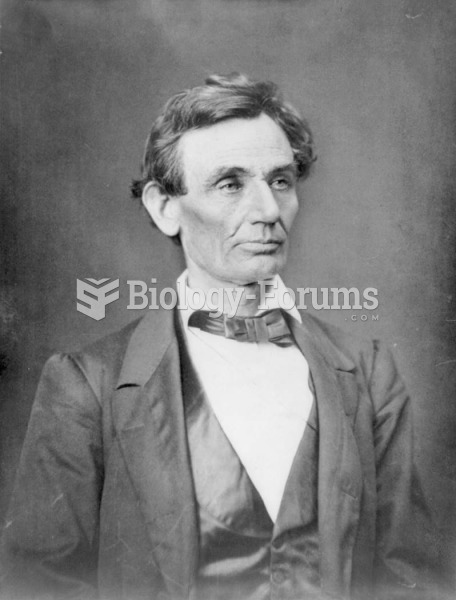|
|
|
Approximately 15–25% of recognized pregnancies end in miscarriage. However, many miscarriages often occur before a woman even knows she is pregnant.
Certain topical medications such as clotrimazole and betamethasone are not approved for use in children younger than 12 years of age. They must be used very cautiously, as directed by a doctor, to treat any child. Children have a much greater response to topical steroid medications.
Although the Roman numeral for the number 4 has always been taught to have been "IV," according to historians, the ancient Romans probably used "IIII" most of the time. This is partially backed up by the fact that early grandfather clocks displayed IIII for the number 4 instead of IV. Early clockmakers apparently thought that the IIII balanced out the VIII (used for the number 8) on the clock face and that it just looked better.
Children of people with alcoholism are more inclined to drink alcohol or use hard drugs. In fact, they are 400 times more likely to use hard drugs than those who do not have a family history of alcohol addiction.
The first documented use of surgical anesthesia in the United States was in Connecticut in 1844.
 This engraving by William Russell Birch shows Congress Hall (left), which was occupied by Congress f
This engraving by William Russell Birch shows Congress Hall (left), which was occupied by Congress f
 That politics was always a rough business is shown in this cartoon, which shows Lincoln, assisted by
That politics was always a rough business is shown in this cartoon, which shows Lincoln, assisted by





